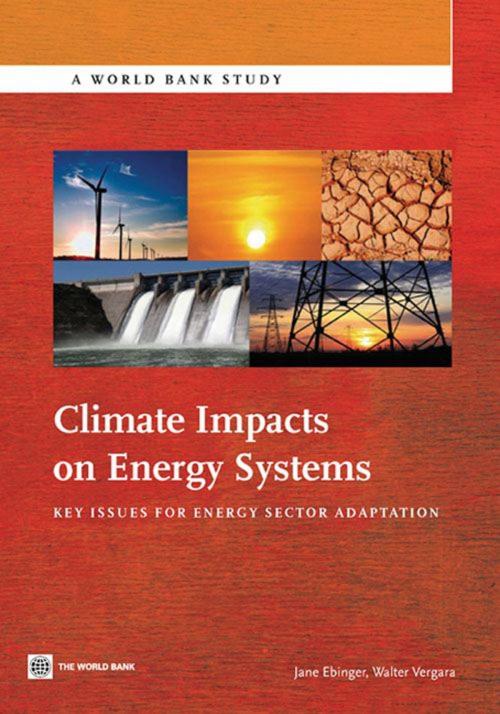Climate Impacts on Energy Systems: Key Issues for Energy Sector Adaptation
Business & Finance, Industries & Professions, Industries| Author: | Ebinger, Jane; Vergara, Walter | ISBN: | 9780821386989 |
| Publisher: | World Bank | Publication: | January 28, 2011 |
| Imprint: | Language: | English |
| Author: | Ebinger, Jane; Vergara, Walter |
| ISBN: | 9780821386989 |
| Publisher: | World Bank |
| Publication: | January 28, 2011 |
| Imprint: | |
| Language: | English |
While the energy sector is a primary target of efforts to arrest and reverse the growth of greenhouse gas emissions and lower the carbon footprint of development it is also expected to be increasingly affected by unavoidable climate consequences from the damage already induced in the biosphere. Energy services and resources as well as seasonal demand will be increasingly affected by changing trends increasing variability greater extremes and large inter-annual variations in climate parameters in some regions. All evidence suggests that adaptation is not an optional add-on but an essential reckoning on par with other business risks. Existing energy infrastructure new infrastructure and future planning need to consider emerging climate conditions and impacts on design construction operation and maintenance. Integrated risk-based planning processes will be critical to address the climate change impacts and harmonize actions within and across sectors. Also awareness knowledge and capacity impede mainstreaming of climate adaptation into the energy sector. However the formal knowledge base is still nascent?information needs are complex and to a certain extent regionally and sector specific. This report provides an up-to-date compendium of what is known about weather variability and projected climate trends and their impacts on energy service provision and demand. It discusses emerging practices and tools for managing these impacts and integrating climate considerations into planning processes and operational practices in an environment of uncertainty. It focuses on energy sector adaptation rather than mitigation which is not discussed in this report. This report draws largely on available scientific and peer-reviewed literature in the public domain and takes the perspective of the developing world to the extent possible.
While the energy sector is a primary target of efforts to arrest and reverse the growth of greenhouse gas emissions and lower the carbon footprint of development it is also expected to be increasingly affected by unavoidable climate consequences from the damage already induced in the biosphere. Energy services and resources as well as seasonal demand will be increasingly affected by changing trends increasing variability greater extremes and large inter-annual variations in climate parameters in some regions. All evidence suggests that adaptation is not an optional add-on but an essential reckoning on par with other business risks. Existing energy infrastructure new infrastructure and future planning need to consider emerging climate conditions and impacts on design construction operation and maintenance. Integrated risk-based planning processes will be critical to address the climate change impacts and harmonize actions within and across sectors. Also awareness knowledge and capacity impede mainstreaming of climate adaptation into the energy sector. However the formal knowledge base is still nascent?information needs are complex and to a certain extent regionally and sector specific. This report provides an up-to-date compendium of what is known about weather variability and projected climate trends and their impacts on energy service provision and demand. It discusses emerging practices and tools for managing these impacts and integrating climate considerations into planning processes and operational practices in an environment of uncertainty. It focuses on energy sector adaptation rather than mitigation which is not discussed in this report. This report draws largely on available scientific and peer-reviewed literature in the public domain and takes the perspective of the developing world to the extent possible.















